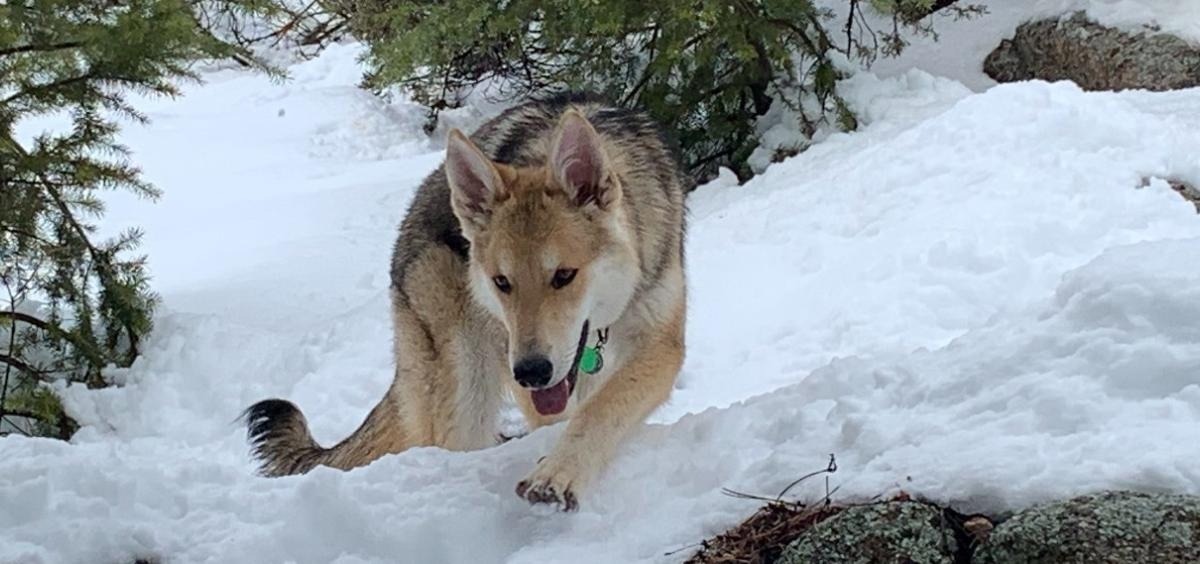Reviewed by Danielle Ellis, B.Sc.Oct 3 2023
Researchers at Oregon State University – Cascades have led a study that suggests gut microbes discovered in wild wolves could hold the solution to relieving a prevalent gastrointestinal ailment in domestic dogs.

Image Credit: Oregon State University
Published in Applied Microbiology, the study reveals the presence of a unique strain of Paenibacillus bacteria exhibiting probiotic traits, which are known to provide health benefits to the host.
In this context, the potential advantage would be in preventing canine inflammatory bowel disease, a persistent condition marked by symptoms such as vomiting, decreased appetite, weight loss, flatulence, stomach rumbling, and abdominal discomfort, as explained by Bruce Seal from OSU-Cascades' biology program.
At present, there is no known cure for this ongoing dysbiosis of the gastrointestinal tract, and there are limited options for treatment. Underlying causes of the condition include an animal’s genetics, environmental factors, the immunological state of the GI tract, and, maybe most importantly, an altered gut microbiome.”
Bruce Seal, Oregon State University – Cascades
This research, conducted in collaboration between scientists at OSU-Cascades and Oregon State's Carlson College of Veterinary Medicine, represents a significant advancement toward the development of a dietary supplement or food additive. Such a product could help reshape the composition of a dog's gut microbiome to resemble that of its wolf ancestors, given their shared genetic heritage.
Dogs were the first domesticated animal. The modern dog diet, high in carbohydrates, does not reflect a wolf’s diet – for example, starches in processed dog food are resistant to digestion, and that can have a negative impact on the microbial community in a dog’s GI tract and in turn its gastric physiology.”
Bruce Seal, Oregon State University – Cascades
For this study, the researchers gathered gastrointestinal material from a deceased wolf, which had succumbed to injuries caused by a car collision just one day prior.
They successfully isolated 20 distinct gut bacteria, which preliminary genetic assessments suggest possess probiotic attributes. Specifically, for this research paper, they conducted whole genome sequencing on a newly discovered Paenibacillus strain.
This particular bacterium carries genetic information encoding enzymes capable of breaking down complex carbohydrates like starches, as explained by Seal. Additionally, it possesses gene systems that produce antimicrobial substances.
Non-toxic, spore-forming bacteria promote anti-inflammatory immune responses in the gut and inhibit pathogen growth. Taking everything into account, this bacterial isolate could be a potential useful probiotic for domestic dogs.”
Bruce Seal, Oregon State University – Cascades
Seal also mentioned that the research team intends to conduct whole genome sequencing on an additional four or five bacterial species from the pool of 20 isolates they have identified.
Source:
Journal reference:
McCabe, J., et al. (2023). Phenotypic and Draft Genome Sequence Analyses of a Paenibacillus sp. Isolated from the Gastrointestinal Tract of a North American Gray Wolf (Canis lupus). Applied Microbiology. doi.org/10.3390/applmicrobiol3040077.